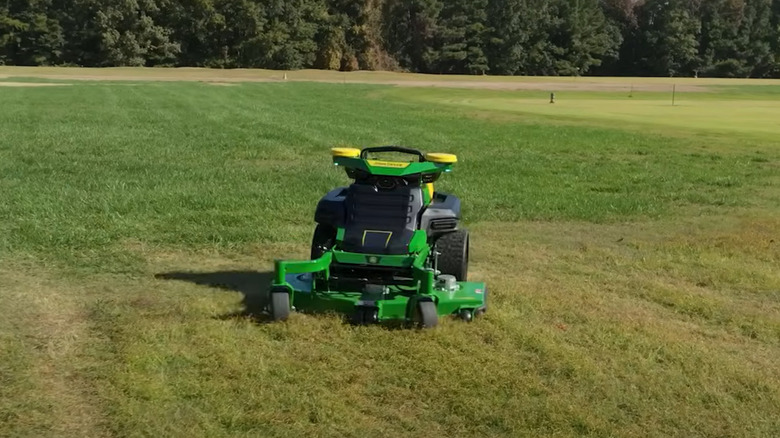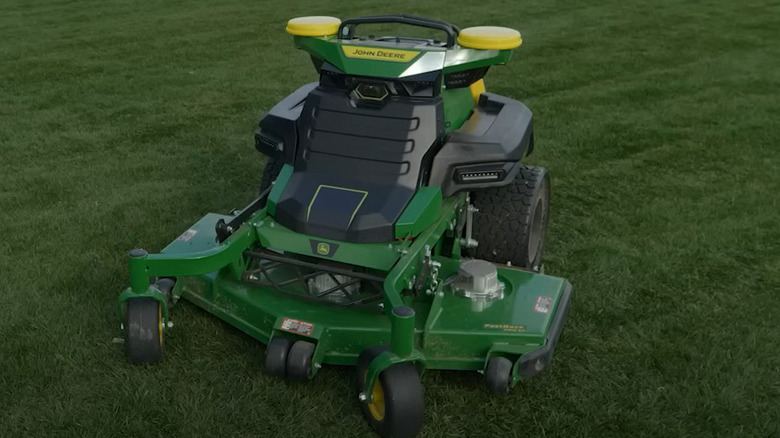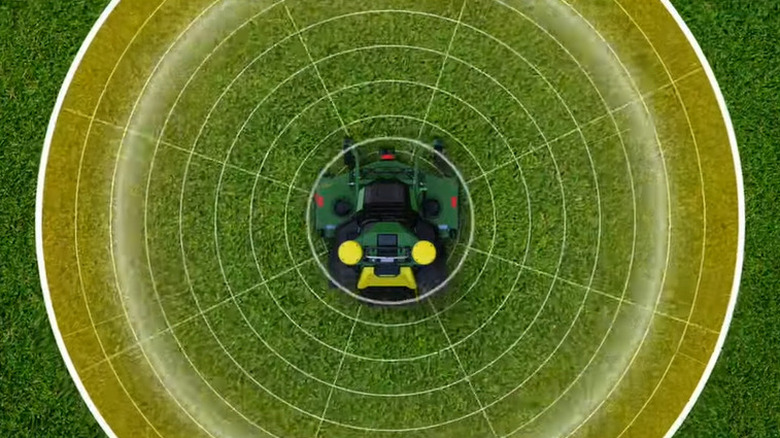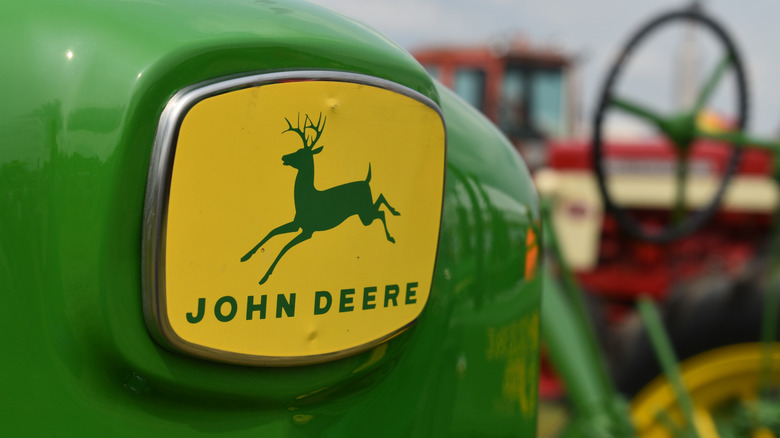Everything We Know About John Deere's New Autonomous Robot Lawn Mower
CES 2025, the world's largest technology event, is currently underway in Las Vegas, Nevada, and will run until January 10. The event will feature 4,500 exhibitors, including 1,400 start-ups.
Nearly 140,000 people attended in 2024, but this year's attendance could surpass that, with companies like Nvidia, Panasonic, and Honda making appearances. Honda has already generated a lot of buzz, unveiling its 0 Series of all-electric vehicles. The Sony Honda Mobility's AFEELA 1 was also unveiled on the first day, though it feels doomed from the start.
Unsurprisingly, artificial intelligence, automation, and green energy are major focal points of the event. What might be a bit surprising to some, though, is the fact that John Deere seems to be going all in on autonomous technologies. At CES 2025, the company is unveiling a series of autonomous vehicles, including: a 9RX Tractor, a 5ML Orchard Tractor, an articulated dump truck for quarry operations, and, notably, an electric mower for commercial landscaping.
Here's everything we know so far about John Deere's new autonomous robot lawn mower, which currently doesn't have a confirmed release date.
John Deere's robot mower: Charging and battery runtime
Referred to as the Autonomous Battery Electric Mower for Commercial Landscaping, this compact machine is powered by a 21.4 kWh battery — so not even the most powerful residential electric lawn mowers come close to matching its battery capacity.
John Deere's autonomous robot lawn mower can be fully charged in about six hours using a 240-volt power outlet, or between 12 and 14 hours with a 120-volt power outlet. On a full charge, the mower can deliver up to 10 hours of operation in light conditions and up to four hours in heavier conditions. The batteries are integrated and cannot be swapped out.
"Our approach here is really to have the energy on board and get the job done and not worry about it," John Deere engineer Tim Lewis explained to Green Industry Pros. "That's kind of where we took the integrated approach, which gives us a higher energy density in terms of how much volume we need on the machine, and how we control how those are packaged, as well."
GPS and 360-degree cameras
John Deere's autonomous mower utilizes the same camera technology as other products in the line, adjusted to its smaller size. It features four pairs of stereo cameras, providing 360-degree coverage.
The mower is equipped with two GPS antennas, and uses John Deere's GPS technology to map and navigate terrain, define boundaries, detect obstacles, and operate autonomously. It can also work in areas without GPS coverage, using sensor-based navigation.
Just like tractors and other machines, the mower can be managed and controlled via the cloud-based John Deere Operations Center Mobile. The app also allows users access to live video, displays relevant data, and sends notifications.
Brad Powers, the lead engineer for autonomy on the mower, told Green Industry Pros that safety is a top priority for John Deere. "It's all about making sure we have a provably safe product. On top of that, we've spent a lot of time and a lot of effort developing repeatable and reliable hardware that we expect to operate for many, many years," Powers said, noting that John Deere is still working on the mower's ability to handle slopes.
Why John Deere is focusing on autonomous electric vehicles
In a press release accompanying the unveiling of its new line of autonomous vehicles, John Deere cited a lack of skilled labor as a major issue in the agriculture, construction, and commercial landscaping industries. Their products will help mitigate this shortage, the company said.
"Our agriculture, construction, and commercial landscaping customers all have work that must get done at certain times of the day and year, yet there is not enough available and skilled labor to do the work. Autonomy can help address this challenge," stated Jahmy Hindman, Chief Technology Officer at John Deere.
"This will not only benefit our customers, but all of us who rely on them to provide the food, fuel, fiber, infrastructure, and landscaping care that we depend on every day," he added.
John Deere has big plans for the future and will continue to build electric tractors, as well as mowers, Gator utility vehicles, and various types of construction equipment and machinery. It is not likely that the company will go fully electric anytime soon, but it does appear to be moving in that direction.



